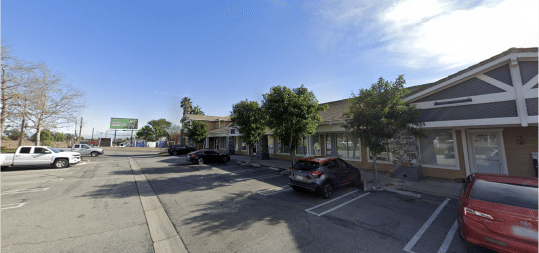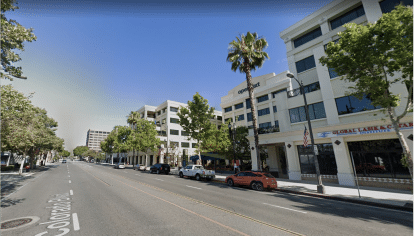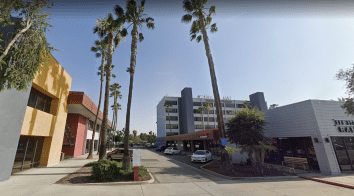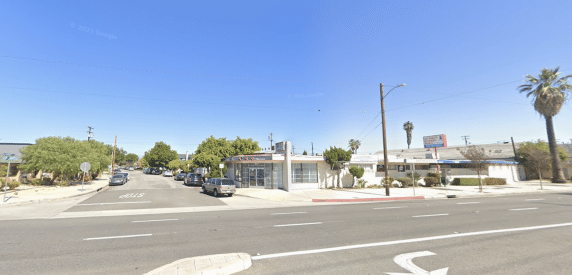
If you or a family member were arrested, a bail bond could help you get out of jail fast. A criminal defendant usually doesn't have the resources to post cash bail or pay the entire bail deposit in one go.
A bail bond agency will pay bail on behalf of a defendant, allowing them to be released from jail until their scheduled court appearance. Here's how it works and how a licensed bail bondsman in Southern California can assist you.
Understanding Bail Bonds in California

The bail process can be complicated, especially if you've never had to pay bail bonds or post bail to the court clerk. How does bail work in California, and how much money is it going to set you or your family back to get out of jail before your trial? What happens if you can't get out before your appearance?
Understanding what happens an arresting officer apprehends a criminal suspect can help you prepare for the hopefully unlikely event that you or a loved one are arrested for a misdemeanor or serious felony.
What Is a Bail Bond?
A bail bond is an amount of money paid to the court in exchange for the release of a defendant so they don't have to stay in jail until their hearing. Property bonds are also available when defendants or their family members don't have the money to pay cash bail.
Posting bail is essentially a promise that the defendant will make all their future court appearances and won't leave or flee before their trial is scheduled to take place. If the accused doesn't show, the bail amount is forfeited.
How Bail Bond Agents Work
A bail bondsman will work with the defendant or one of their family members to secure enough collateral to offer a loan to post bail. This is 10% of the total bail amount in California, not including any fees or interest.
Posting bail is essentially a promise that the defendant will make all their future court appearances and won't leave or flee before their trial is scheduled. If the accused doesn't show, the bail amount is forfeited.
Types of Bail in California
There are three different types of bail in California:
Cash Bail – California Penal Code Section 1269
Cash bail can be paid with cash in the exact amount the bail is set for or with a certified or cashier's check. This is considered the most common form of bail throughout the state.
Property Bond – California Penal Code Section 1276.5
A property bond allows a defendant or someone they know to post the equity they have in real property as collateral, like their home or a vehicle.
Bail Bond – California Penal Code Section 1276
Bail bond companies help defendants get out of jail for a small percentage of their bail amounts. Without this service, most people would not be able to afford cash bail and the cost of their release, so jails would be more critically overcrowded than they already are.
Factors That Influence the Bail Amount

Multiple factors influence the bail amount for a defendant, including but not limited to:
- If the alleged offense was a misdemeanor or felony crime;
- The defendant's criminal history;
- If there are any outstanding warrants on the defendant; or
- Any unusual circumstances surrounding the alleged crime.
If the defendant has a past criminal history or is deemed to be a flight risk, the judge may set a higher bail or deny bail entirely. In this case, you would need to work with a criminal defense attorney to make an argument to the court for lower bail.
In situations where there is no prior criminal history and well-established connections within the community, it may be possible for a defendant to be released on his own recognizance. This means you or your family member won't have to pay a bail fee.
Costs Associated With Bail Bonds
Most bail bondsmen charge a small fee for their services. Since there's no standard across the state and numerous discounts available, the release cost differs from case to case.
Bail Bond Process in California
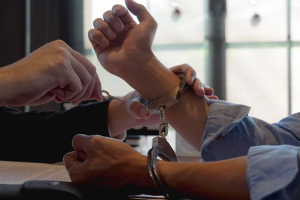
It's crucial to understand how bail bonds work in California and what to expect during the process if a judge has to set bail for you or someone you know.
Arrest and Booking
After you or someone you know are arrested, you will be transported by police vehicle to the jail, where booking will take place.
At any point, you can remain silent and request to speak only with criminal defense attorneys about your rights and the charges against you.
During booking, your mugshot will be taken, and you will be fingerprinted before being taken to jail. Then, corrections officers will search your person for contraband, and you'll be given a mat and uniform and taken to your cell.
Setting Bail
Next, the judge in your case will set the bail amount or decide if you can be released on your own recognizance. You won't have to pay a cash bond if you're released on your own recognizance.
Instead, you'll sign an agreement that you were given the date of your court appearance and understand that you must appear in court under the penalty of another arrest.
Can a judge deny bail? In some circumstances, a defendant cannot be trusted to make future court appearances, and the judge decides that no bond amount is high enough to ensure the defendant will appear in court.
Bail Review Hearings
If your bail amount is set too high or you have been denied, your defense attorney can request a bail hearing to review your bail schedule and determine if your bond amount can be lowered.
However, this may not be an option for defendants accused of committing a violent felony.
If the court determines that the offense makes the defendant a risk to public safety or that they're unlikely to appear on their scheduled court date, the judge is more likely to deny bail or set the bail amount exceedingly high.
Forfeiture and Exoneration
When the defendant arrives at all their court appearances and satisfies the judge's requirements, their bail will be exonerated.
This means the defendant, their co-signer, or the bail bond agent that paid the bail money is no longer at risk of forfeiture.
Bail forfeiture occurs when a defendant fails to make their court appearances, and the court can no longer expect them to attend any future court dates.
In this case, the defendant will be considered a flight risk, and a warrant will be issued for arrest. If the defendant appears for one of their later court dates, they will be arrested at that time, and no bail schedule will be offered.
Risks and Responsibilities for Bail Bond Agents and Co-Signers
The bail bond company and the person signing the surety bond take risks and have certain responsibilities when they agree to work together.
Role of Bail Bond Agents
The bail bondsman must post bail for the defendant and work with corrections officers to get them released. They understand the bail system and how to quickly secure a defendant's release as soon as possible after an arrest.
Defendant Responsibilities
The defendant is required to appear in court at the time they are scheduled to. Unlike civil courts, there are criminal penalties if any court date is missed.
Co-signer Responsibilities
If someone besides the defendant signed for the bond, they are responsible for paying back the total bail amount.
Often, the co-signer and the defendant will work out an agreement for the defendant to pay the bondsman back for the bail money they paid upfront to get them out of jail.
Risks of Becoming a Co-signer
Cosigning for a defendant's bail can be risky. If the defendant fails to make their court dates, the co-signer must repay the entire bail amount.
Even if the defendant and the co-signer agree to take care of the bail debt, if the defendant flees or refuses to pay it back, the bond agent contacts the co-signer to resolve the outstanding bill.
If the co-signer doesn't pay, the bond agent can take collection action against them.
Get Help With Your Bail Bonds in California, and Call Us Today!
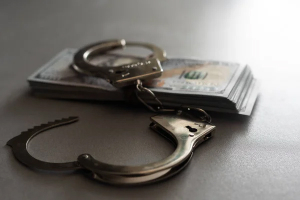
If you or someone in your family was arrested for a crime, you must act quickly to take out a property bond or get the bail money together to be released from jail.
CBB Bail Bonds is a licensed Southern California bond company that can help you post bail and ensure the defendant appears in court for their scheduled hearing.
Contact us today at (562) 740-8289 for more information about our bail bond business and how we can post cash bail on your behalf or the behalf of your loved one in jail.
Frequently Asked Questions (FAQ) About How Bail Bonds Work
Are there any restrictions on how high my bail can be set?
A court cannot set your bail too high according to the 8th Amendment to the U.S. Constitution.
However, what "too high" means isn't defined in the law, which leaves it open to interpretation. Judges can set your bail at whatever amount they like, and you must have a hearing for it to be lowered.
How does bail work if the defendant dies?
In California, once the 10% bail deposit is paid, it cannot be returned, even if the defendant dies.
If you did not go through a bond agent and paid the money directly to the court, there may be some circumstances in which you can get this refunded. This is unlikely, though, except in extremely unusual situations.
What information do I need when applying for a bail bond?
To apply for bail, you will need the defendant's full name and date of birth, arrest date, case number, and the crime they were arrested for.
You will also need your information, including your address, telephone number, social security number, picture ID, and signature.
How soon is a defendant able to see a judge?
How quickly someone arrested can see a judge for their arraignment depends on several things.
The arraignment is when the judge first reviews the case, and you are allowed to enter a plea, one of the most important parts of a trial.
Defendants have the constitutional right to a speedy trial. In most cases, they cannot be kept incarcerated without being allowed to appear before a judge for more than 48 hours, not including holidays and weekends.
What happens if I move?
If you relocate and owe money to a bail bondsman, you must ensure they know where you'll be moving to and how they can reach you before you go.
If you are a defendant, you must also let the court know where you are and how they can contact you. Otherwise, it could be considered fleeing before your trial date.
